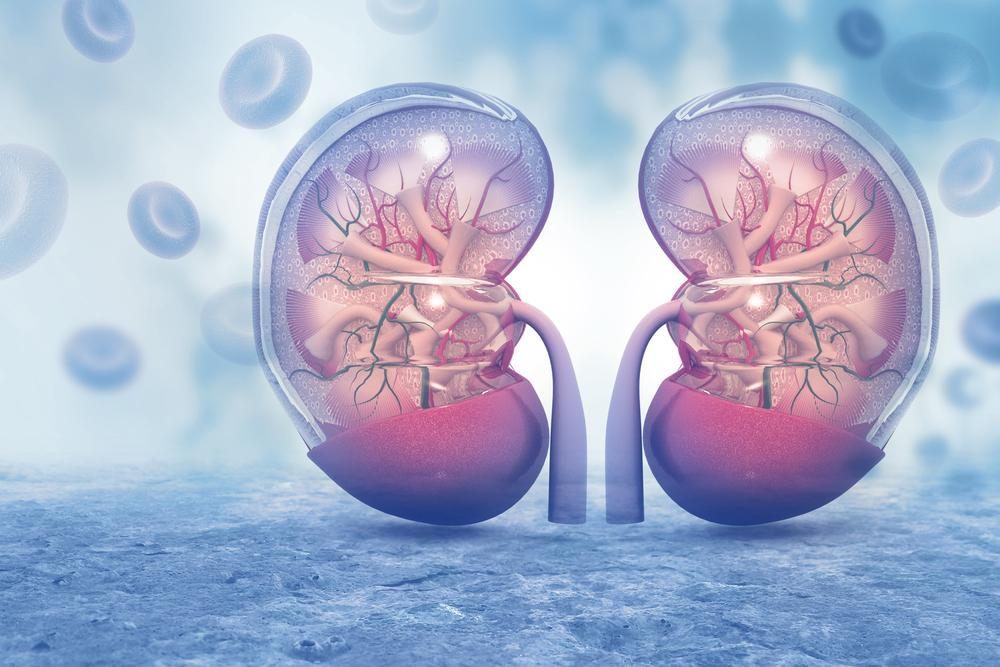Did you know that renal disease is one of the leading causes of death in people with diabetes? In fact, it’s a problem that often goes ignored until it’s too late. If you have diabetes, it’s important to be aware of the risk factors for renal disease and take steps to protect your kidneys. In this blog post, we will discuss the risk of renal disease in diabetes and what you can do to keep your kidneys healthy.
Contents
Understanding Renal Disease
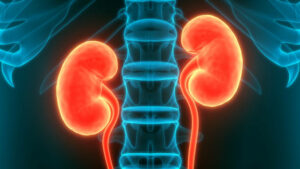 Your kidneys are two bean-shaped organs that filter waste and excess fluid from your blood. They also produce hormones that help regulate blood pressure and keep your bones healthy. Renal disease occurs when the kidney is damaged and can’t function properly. This damage can be caused by many things, but diabetes is one of the most common causes.
Your kidneys are two bean-shaped organs that filter waste and excess fluid from your blood. They also produce hormones that help regulate blood pressure and keep your bones healthy. Renal disease occurs when the kidney is damaged and can’t function properly. This damage can be caused by many things, but diabetes is one of the most common causes.
Some of the early signs of kidney disease include:
- Swelling in your feet, ankles, or legs
- Frequent urination
- Fatigue
- Difficulty concentrating
If you have diabetes, it’s important to get tested for renal disease at least once a year. If you already have renal disease, it’s important to work with your healthcare team to manage it and prevent it from getting worse.
How Is Diabetes Related to Renal Disease?
Diabetes is a leading cause of kidney disease. In fact, about one in four people with diabetes will develop renal disease. Some of the ways diabetes can damage the kidney include:
High blood sugar levels
High blood sugar levels are harmful to the kidney because they can damage the blood vessels. When the blood vessels are damaged, they can’t filter waste and excess fluid from the blood properly. This leads to a buildup of waste and fluid in the body, which can damage the kidney.
Protein in the urine
Protein in the urine is a sign that the kidney is not filtering waste from the blood properly. When there’s too much protein in the urine, it can damage the kidney. It is caused by high blood sugar levels damaging the kidney’s filters which allow the protein to leak into the urine.
High blood pressure
High blood pressure can damage the kidney by damaging the blood vessels. This makes it difficult for the kidney to filter waste and excess fluid from the blood. It can also lead to a buildup of waste and fluid in the body, which can damage the kidney. That is why it is important to keep your blood pressure under control if you have diabetes.
Nerve damage
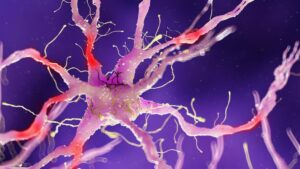 Nerve damage is another complication of diabetes that can damage the kidney. When the nerves are damaged, they can’t send signals to the kidney properly. This can cause the kidney to filter too much or too little blood. This can lead to a buildup of waste and fluid in the body, which can damage the kidney.
Nerve damage is another complication of diabetes that can damage the kidney. When the nerves are damaged, they can’t send signals to the kidney properly. This can cause the kidney to filter too much or too little blood. This can lead to a buildup of waste and fluid in the body, which can damage the kidney.
Damage to the blood vessels
Diabetes can also damage the blood vessels. This makes it difficult for the kidney to get the blood it needs to function properly. When the kidney doesn’t get enough blood, it can’t filter waste and excess fluid from the blood properly. This can lead to a buildup of waste and fluid in the body, which can damage the kidney.
The relationship between diabetes and kidney disease is complex, but the bottom line is that diabetes can damage the kidney. If you have diabetes, it’s important to get tested for kidney disease and take steps to protect your kidney health.
What Are the Symptoms of Kidney Disease?
 The symptoms of renal disease can be hard to spot in the early stages. This is because kidney damage can occur slowly over time. The symptoms may not appear until the kidney damage is severe. Some of the symptoms of kidney disease include:
The symptoms of renal disease can be hard to spot in the early stages. This is because kidney damage can occur slowly over time. The symptoms may not appear until the kidney damage is severe. Some of the symptoms of kidney disease include:
- Swelling in your feet, ankles, or legs
- Frequent urination
- Fatigue
- Difficulty concentrating
- Nausea
- Vomiting
- Itching
- Muscle cramps
- Dry skin
The cause of these symptoms is the buildup of waste and fluid in the body. When the kidney is damaged, it can’t filter waste and excess fluid from the blood properly. This leads to a buildup of waste and fluid in the body, which can cause the symptoms listed above.
If you have diabetes, it’s important to get tested for kidney disease at least once a year. If you already have renal disease, it’s important to work with your healthcare team to manage it and prevent it from getting worse.
How To Diagnose Renal Disease?
Now that you know how kidney disease is related to diabetes, let’s talk about how it’s diagnosed. Your healthcare team can do tests to see how well your kidneys are working. Some of the tests used to diagnose kidney disease include:
Blood test
A blood test can be used to check for kidney damage. The test measures the level of creatinine in your blood. Creatinine is a waste product that’s produced by the muscles. It’s removed from the body by the kidney. A high level of creatinine in the blood can be a sign of kidney damage. This is because the kidney isn’t removing creatinine from the blood properly. Other types of kidney damage can also lead to a high level of creatinine in the blood.
Urinalysis
A urinalysis is a test of urine. It can be used to check for kidney damage. The test looks for proteins and blood in the urine. A high level of protein or blood in the urine can be a sign of kidney damage. It can also be a sign of other problems, such as a urinary tract infection. When kidney damage occurs, the kidney may leak proteins and blood into the urine. This can lead to a high level of proteins and blood in the urine.
Imaging tests
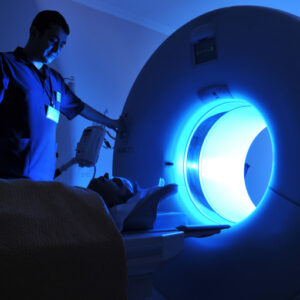 Imaging tests can be used to check for kidney damage. The most common imaging test is an ultrasound. An ultrasound uses sound waves to create an image of the kidney. An ultrasound can be used to check the size and shape of the kidney. It can also be used to check for kidney stones or tumors. Other imaging tests, such as a CT scan or MRI, can also be used to check for kidney damage.
Imaging tests can be used to check for kidney damage. The most common imaging test is an ultrasound. An ultrasound uses sound waves to create an image of the kidney. An ultrasound can be used to check the size and shape of the kidney. It can also be used to check for kidney stones or tumors. Other imaging tests, such as a CT scan or MRI, can also be used to check for kidney damage.
Kidney biopsy
A kidney biopsy is a test that involves taking a small sample of kidney tissue. The tissue is then examined under a microscope. A kidney biopsy can be used to check for kidney damage. It can also be used to check for other problems, such as kidney cancer. When kidney damage occurs, the kidney tissue may look abnormal under a microscope. It indicates that kidney damage has occurred.
The above tests can be used to diagnose kidney disease. If you have kidney disease, it’s important to work with your healthcare team to manage it and prevent it from getting worse.
How To Treat Kidney Disease?
There is no cure for kidney disease. However, there are treatments that can help slow the progression of kidney disease and improve your quality of life. Some of the treatments used to treat kidney disease include:
Blood pressure control
High blood pressure is a leading cause of kidney disease. Therefore, it’s important to keep your blood pressure under control. Your healthcare team can prescribe medication to help control your blood pressure. They may also recommend making lifestyle changes, such as eating a healthy diet and exercising regularly.
Blood sugar control
When diabetes is the cause of kidney disease, it’s important to keep your blood sugar under control. This can help prevent kidney damage from getting worse. Proper blood sugar control can also help improve kidney function. To help control your blood sugar, your healthcare team may prescribe medication. Some people may also need to make lifestyle changes, such as eating a healthy diet and exercising regularly.
Dialysis
Dialysis is a treatment that filters waste from the blood. It’s used when the kidneys can no longer filter waste from the blood on their own. There are two types of dialysis: hemodialysis and peritoneal dialysis.
Hemodialysis
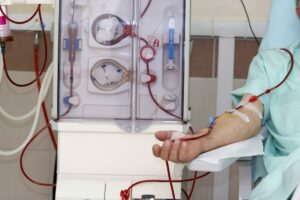 Hemodialysis is a type of dialysis that uses a machine to filter waste from the blood. The machine is connected to your veins and arteries. Blood is removed from your body and passed through the machine. The machine filters out waste products and excess fluid. The filtered blood is then returned to your body. Hemodialysis is typically done three times a week for four hours at a time. It can be done at a dialysis center or at home depending on your individual needs. This type of dialysis requires a special diet and fluid restrictions.
Hemodialysis is a type of dialysis that uses a machine to filter waste from the blood. The machine is connected to your veins and arteries. Blood is removed from your body and passed through the machine. The machine filters out waste products and excess fluid. The filtered blood is then returned to your body. Hemodialysis is typically done three times a week for four hours at a time. It can be done at a dialysis center or at home depending on your individual needs. This type of dialysis requires a special diet and fluid restrictions.
Peritoneal dialysis
Peritoneal dialysis is a type of dialysis that uses the lining of your abdomen, or stomach, to filter waste from the blood. A catheter, or tube, is inserted into your abdomen. A solution known as dialysate is then pumped into your abdomen. The dialysate absorbs waste products and excess fluid from your blood. The waste-filled dialysate is then removed from your body. Peritoneal dialysis can be done at home. It’s typically done four to six times a day for 30 minutes to an hour at a time.
Kidney transplant
A kidney transplant is a treatment for kidney failure. It’s also an option for people who are not candidates for dialysis. In a kidney transplant, a healthy kidney from another person is surgically implanted into your body. The transplanted kidney takes over the job of filtering waste from the blood. A kidney transplant requires lifelong immunosuppressant medication to prevent the rejection of the transplanted kidney. That is why the closest match between donor and recipient is essential for a successful kidney transplant.
If you have kidney disease, it’s important to work with your healthcare team to manage it. There are treatments that can help slow the progression of kidney disease and improve your quality of life. It’s important to keep your blood pressure and blood sugar under control. You may also need to make lifestyle changes, such as eating a healthy diet and exercising regularly. Dialysis and kidney transplant are also options for treating kidney disease.
If you have kidney disease, it’s important to work with your healthcare team to manage it. There are treatments that can help slow the progression of kidney disease and improve your quality of life.
Medications For Renal Disease
There are medications that can help slow the progression of kidney disease. These medications can help improve kidney function and reduce the risk of complications. Some of the medications used to treat kidney disease include:
ACE inhibitors
ACE inhibitors means angiotensin-converting enzyme inhibitors. These medications can help prevent kidney damage from getting worse. They work by relaxing blood vessels and reducing the amount of work the heart has to do. They can also be used to treat kidney disease. This helps lower blood pressure and can help prevent kidney damage.
ARBs
ARBs stand for angiotensin receptor blockers. They’re a type of medication that’s used to treat high blood pressure. They can also be used to treat kidney disease. ARBs work by blocking the action of a substance called angiotensin II. Angiotensin II is a hormone that can narrow blood vessels and raise blood pressure. By blocking the action of angiotensin II, ARBs can help lower blood pressure and improve kidney function.
Cholesterol-lowering medications
Cholesterol-lowering medications, such as statins, can help lower cholesterol levels. High cholesterol levels can cause kidney damage. Cholesterol-lowering medications can help prevent this from happening. They work by blocking the production of cholesterol in the liver which lowers the amount of cholesterol in the blood.
Diuretics
Diuretics are also called water pills. They help remove excess fluid from the body. This can help reduce blood pressure and kidney damage. Diuretics can also be used to treat kidney disease. They work by increasing the amount of urine your body makes. This helps remove excess fluid and waste from your body. When kidney disease is caused by diabetes, diuretics can also help lower blood sugar levels.
Phosphate binders
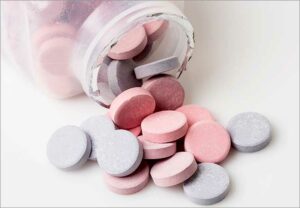 Phosphate binders are medications that are taken with meals. They work by binding to phosphate in the food you eat. This prevents the body from absorbing phosphate. Phosphate is a mineral that’s found in many foods. When kidney disease is caused by kidney failure, high levels of phosphate can build up in the blood. This can cause problems with bone health. That is why it is important to take phosphate binders as it can help reduce the amount of phosphate in the blood.
Phosphate binders are medications that are taken with meals. They work by binding to phosphate in the food you eat. This prevents the body from absorbing phosphate. Phosphate is a mineral that’s found in many foods. When kidney disease is caused by kidney failure, high levels of phosphate can build up in the blood. This can cause problems with bone health. That is why it is important to take phosphate binders as it can help reduce the amount of phosphate in the blood.
Vitamins
People with kidney disease may need to take vitamin supplements. This is because kidney disease can cause the body to lose some vitamins. Vitamins that may be needed include:
- Vitamin B12
- Folic acid
- Vitamin D
- Iron
Anti-inflammatory medication
Anti-inflammatory medication can help reduce kidney inflammation. This can help prevent kidney damage from getting worse. Anti-inflammatory medication can also be used to treat kidney disease. They work by reducing the inflammation in the kidney. This can help improve kidney function. It can also help reduce the risk of complications.
Immunosuppressive medication
Immunosuppressive medication can help prevent kidney damage from getting worse. They work by suppressing the immune system. This can help reduce inflammation in the kidney. Immunosuppressive medication can also be used to treat kidney disease. They work by reducing the activity of the immune system. This can help improve kidney function and reduce the risk of complications. When kidney disease is caused by diabetes, immunosuppressive medication can also help lower blood sugar levels.
All these medications can help treat kidney disease and improve kidney function. They can also help reduce the risk of complications. Always talk to your doctor before starting any medication. They can help you understand the risks and benefits of each medication.
How Can You Prevent Kidney Disease?
There are things you can do to help prevent kidney disease. kidney disease is often caused by diabetes and high blood pressure. You can help prevent these conditions by:
Eating a healthy diet
Kidney disease can often be prevented by eating a healthy diet. Eating a diet that’s high in fruits, vegetables, and whole grains can help lower your risk of developing diabetes and high blood pressure. It can also help you maintain a healthy weight. Some healthy eating tips include:
- Eating plenty of fruits and vegetables.
- Choosing lean protein sources, such as chicken or fish.
- Limiting processed foods, such as cookies, cakes, and chips.
- Reducing sodium intake.
Exercising regularly
Exercising regularly can also help prevent kidney disease. Exercise can help you maintain a healthy weight. It can also help lower your blood pressure and improve your insulin sensitivity. This can help you prevent or delay the onset of diabetes. Some tips for exercising regularly include:
- Find an activity you enjoy, such as walking, biking, or swimming.
- Make time for 30 minutes of exercise most days of the week.
- Breaking up your exercise into smaller chunks of time if needed.
Maintaining a healthy weight
Maintaining a healthy weight is important for kidney health. Being overweight or obese can increase your risk of developing diabetes and high blood pressure. These conditions can lead to kidney disease. You can help maintain a healthy weight by:
- Eating a healthy diet.
- Exercising regularly.
- Limiting portion sizes.
- Avoid sugary drinks and snacks.
Quit smoking
Smoking is harmful to your kidney health. Smoking can damage the blood vessels in your kidneys. This can lead to kidney disease. Quitting smoking can help improve your kidney function and reduce your risk of kidney disease. Some tips for quitting smoking include:
- Set a quit date.
- Choose a method to help you quit, such as nicotine replacement therapy or prescription medication.
- Tell your friends and family about your decision to quit.
- Find support groups or counseling to help you through the process.
Limit alcohol intake
Drinking too much alcohol can also damage your kidney health. Alcohol can increase your blood pressure and lead to dehydration. This can damage the kidney cells and lead to kidney disease. You should limit your alcohol intake to no more than two drinks per day for men and one drink per day for women. Some tips for limiting alcohol intake include:
- Avoid drinking alcohol on an empty stomach.
- Eat food when you drink to slow down the absorption of alcohol.
- Alternate between alcoholic drinks and non-alcoholic drinks.
- Stop drinking if you feel buzzed or drunk.
If you have renal disease, it’s important to follow your treatment plan. This can help slow the progression of kidney disease and improve your quality of life. Maintaining a healthy lifestyle is also important for kidney health. With kidney disease, every little bit counts.
Conclusion
In conclusion, renal disease is a serious complication of diabetes that can lead to kidney failure. If you have diabetes, it is important to control your blood sugar levels and keep your kidney function healthy. In case you develop renal disease, there are treatments available that can help slow its progression. However, the best way to prevent renal disease is to manage your diabetes carefully and keep your kidney function healthy.
For more such information on Diabetes care, consider contacting Mantra Care. Our team of experts can help you manage your diabetes and improve your overall health with our Diabetes Control Program. You can also get in touch with their nutrition experts through our online nutrition counseling, who can guide you through the process and help you achieve your fitness goals.
